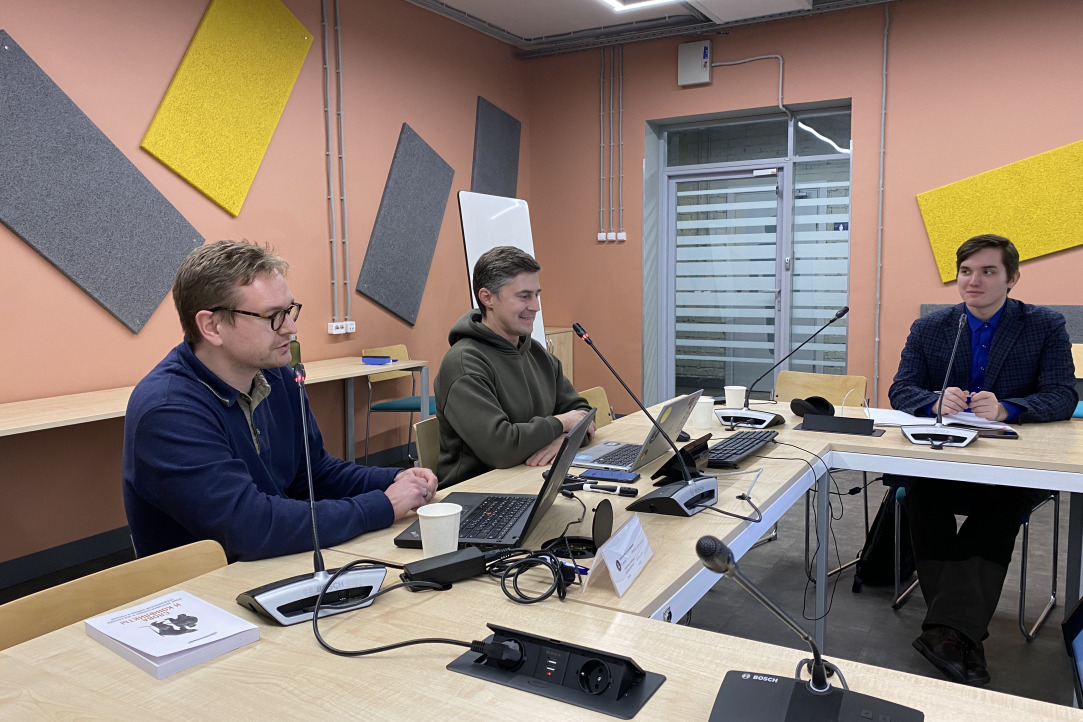Mikhail Agapov on socio-Political contexts of timber exports in the Pechora Region in the 1840s-1860s
On December 9, the Centre for Historical Research organised a public lecture of Mikhail Agapov, a leading researcher at the Laboratory of Historical Geography and Regional Studies of Tyumen State University. The discussion was based on the report of the speaker on the topic "Admirals and Merchants: Socio-Political Contexts of Timber Export in the Pechora Territory in the 1840s-1860s."

Among the wide range of research interests of Mikhail Agapov (anthropology, the history of the USSR and others), the topic of the Russian imperial periphery stands out. This periphery was a space for the most diverse and unusual discussions, economic and political projects, as well as, of course, people of various status and interests. The history of the development of timber exports from the banks of the Pechora in the middle of the 19th century shows completely different historical figures: P.I. and P.P. Krusensterns, officers of the Imperial Navy, and former gold miners merchants V.N. Latkin and M.K. Sidorov; and how they together tried to organise a completely new economic enterprise, manoeuvring between the interests of the state, separated ministries, foreign merchants and their own.
Of particular interest is how, within the framework of the Pechora Company, established in 1858, interaction was established between people who had different resources with different statuses, but who were at the same time in dire need of each other. So, for example, P.I. Kruzenshtern, who, unlike merchants, had the necessary professional knowledge and connections in ministries to obtain trade privileges, nevertheless, did not have the capital of V.N. Latkin and M.K. Sidorov to organise his own company that would have exported timber from Pechora for key state needs: shipbuilding and construction. As a result, the Pechora Company completely went bankrupt by the end of the 1860s, unable to withstand the burden of all the logistical, technical and legal problems of timber export, as well as internal contradictions between partners who saw the economic nature of the enterprise in different ways.
However, the context of the functioning of the company and its holders in the public and economic environment largely predetermined the economic and political climate of the Russian Empire in the late 19th and early 20th centuries. One of the most important results that Mikhail Agapov spoke about was the development and rooting in the Russian business environment of the northern regions of a new economic model of public-private partnership, which was seen by the participants as much more profitable for obtaining economic monopoly rights and privileges than a classic joint-stock company. Moreover, this process was accompanied by an active nationalisation of the economic discourse on the part of the Pechora people, who positioned themselves as the "Zealots of the North", which often compensated for the company’s lack of many elements of professional economic planning, and also, in the end, led to rooting in the Russian political and economic the life of the end of the 19th century the rhetoric of alarmism – the fear of foreign competition and interference.
The active discussion that followed the report of Mikhail Agapov developed and supplemented these reflections, for example, by revealing the ambiguity of the Waldsterben problem that appeared in the report - the rhetoric about the disappearance of forests - which, although it was used by merchants and experts as a basis for alarmism, nevertheless, cannot be superficially reduced to this problem only, especially in the broader context of the development of discussions about private and public property in the Russian Empire. At the same time, thanks to the questions of the listeners and the answers of the speaker, it was found out that alarmism itself in the middle of the 19th century was an extremely ambiguous phenomenon, since the "Zealots of the North" themselves often conducted suspicious, according to their rhetoric, economic operations. In addition, the audience was also interested in the colonisation potential of the Pechora Company project and its place within the framework of the imperial periphery management system.
